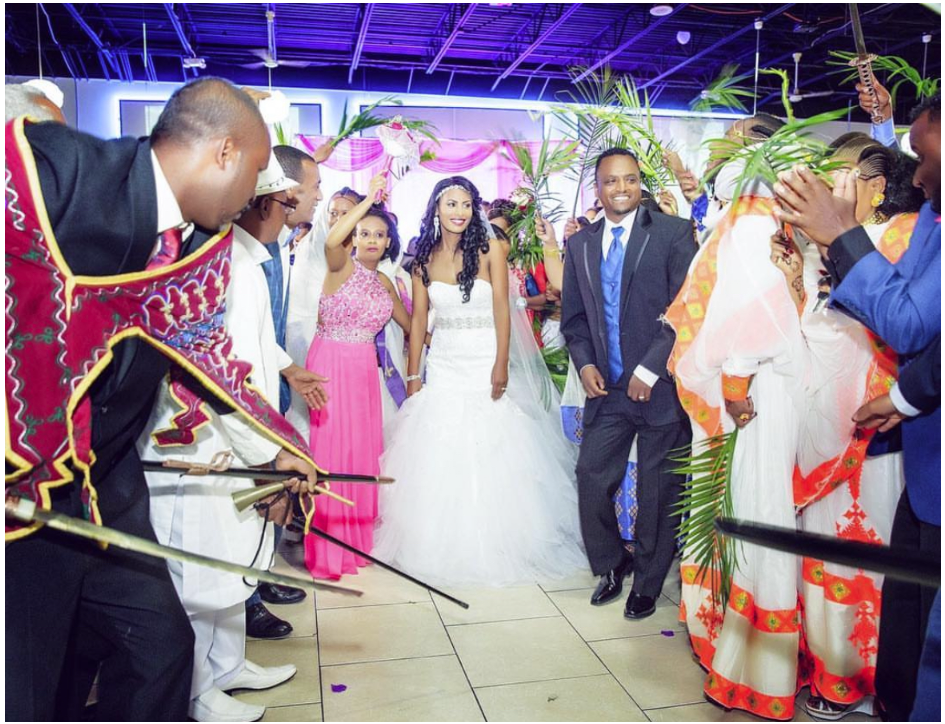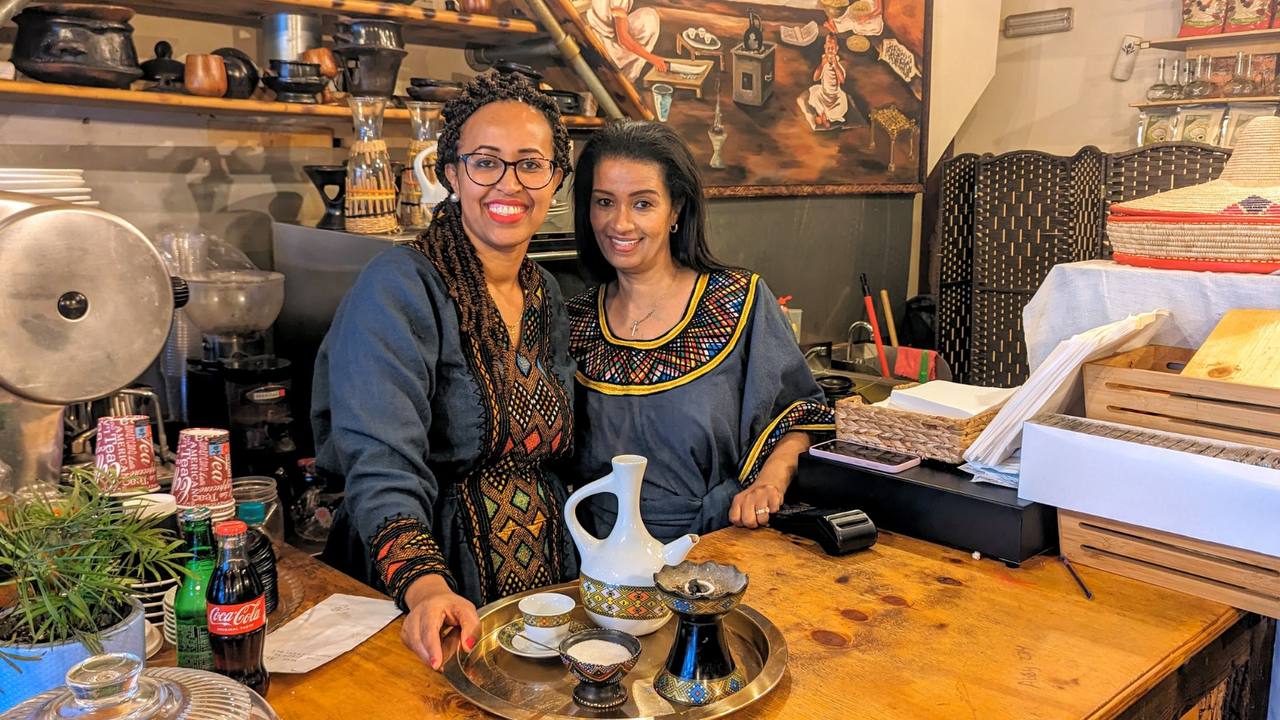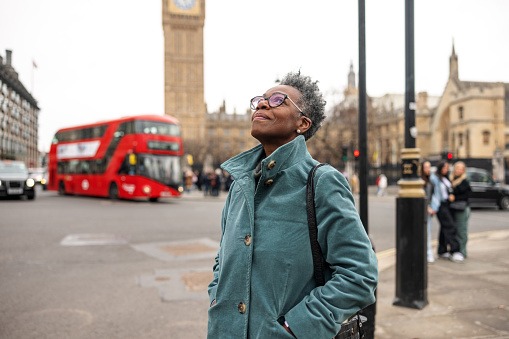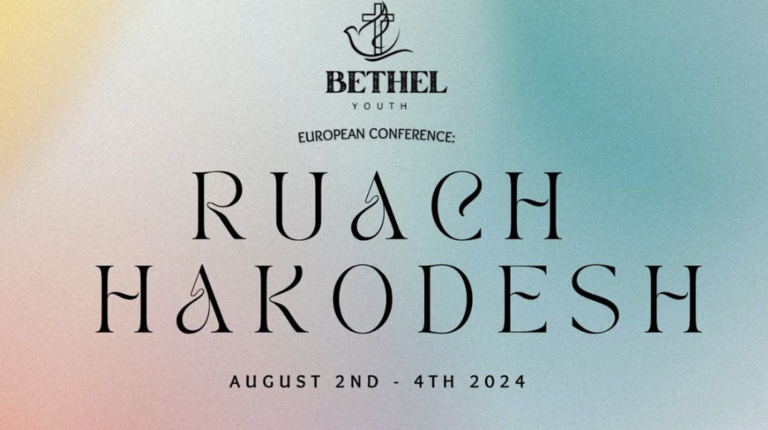Eritrean Weddings in the UK: A Cultural Celebration Across Days
Eritrean weddings are known for their grandeur, vibrancy, and deep cultural significance, and for Eritreans living in the UK, these celebrations offer a unique opportunity to preserve and pass on their rich traditions. A typical Eritrean wedding spans multiple days, each with its own significance, blending both religious customs and community celebrations. Even in the UK, where traditions are maintained with pride, the celebrations remain a beautiful reflection of Eritrean cultural heritage.
The Church Ceremony: A Sacred Beginning
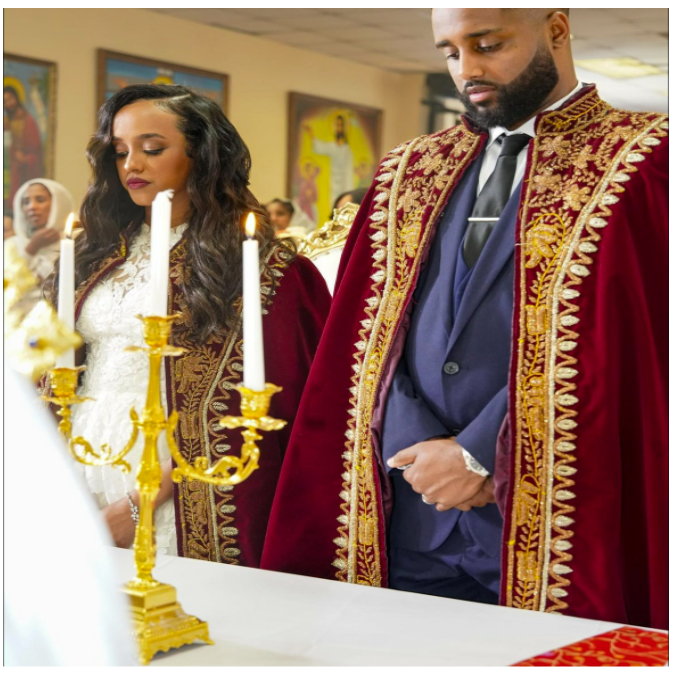
Eritrean weddings begin with a solemn church ceremony, typically held in an Eritrean Orthodox Church. This event marks the religious union of the couple, blessed in front of their families, friends, and community. The bride and groom are dressed in traditional attire—often white garments symbolizing purity and new beginnings. This ceremony, deeply rooted in Eritrean Orthodox traditions, is a sacred and meaningful start to the festivities.
Even in the UK, this aspect of the wedding is an opportunity for the Eritrean diaspora to gather in celebration of faith, community, and family. The religious service is followed by a smaller gathering where immediate family members give their blessings and share their hopes for the couple’s future.
The Wedding Celebration: Days of Joy and Togetherness
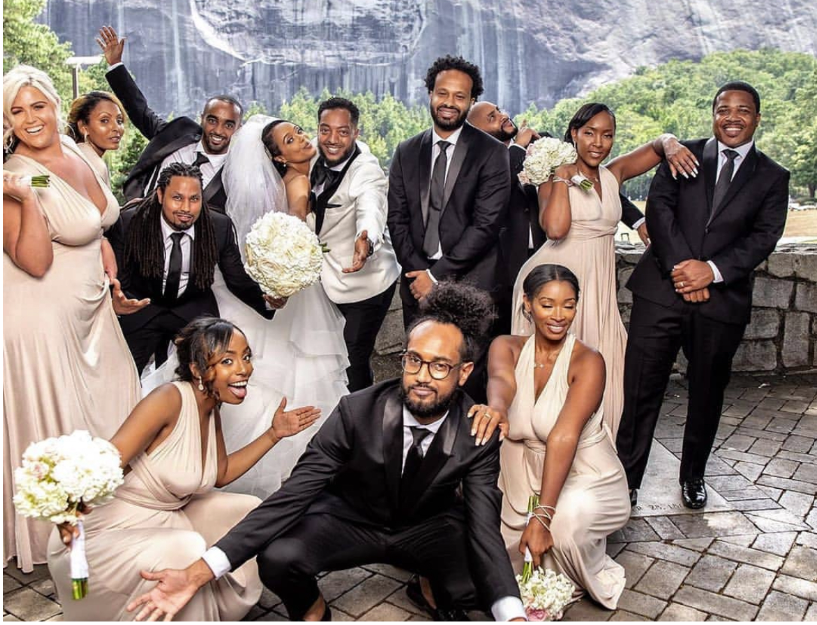
A few days after the church ceremony, the main wedding celebration takes place, which is the true highlight of an Eritrean wedding. This event is a massive party with hundreds of guests, often held in large halls or event venues in the UK. The bride and groom typically change into stunning traditional Eritrean wedding attire, with the bride often wearing a dazzling “zuria” and the groom dressed in a complementary outfit.
Guests arrive in colorful traditional outfits, dancing to the vibrant sounds of Eritrean music, from Tigrigna to Saho tunes. The celebration is not just about the bride and groom; it’s a community event where families, friends, and guests from near and far come together to celebrate. Traditional Eritrean dishes such as injera, tsebhi (stew), and various meat and vegetable dishes are served in abundance, and the event is often accompanied by cultural dances and traditional music.
Music and dance are the lifeblood of these celebrations, with traditional dances forming an integral part of the occasion. The joy is palpable, with guests forming dance circles, clapping, and celebrating the couple in a vibrant display of unity and culture.
Melsi: The After-Wedding Celebration
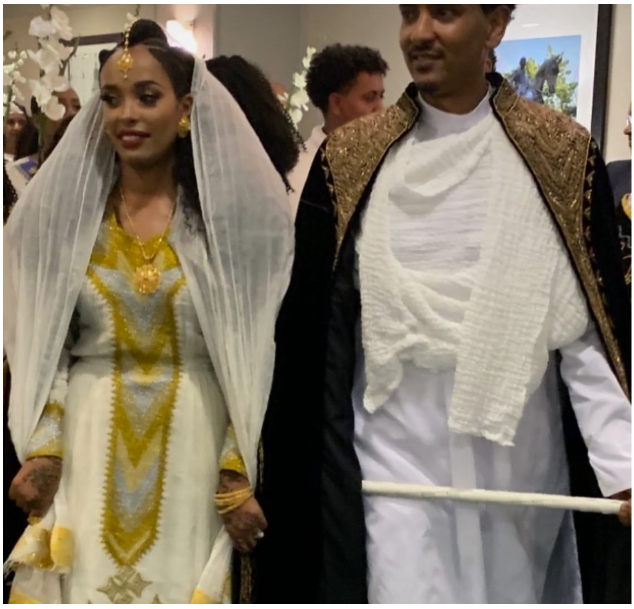
Two days after the main wedding event, another significant gathering takes place called “Melsi.” This after-wedding celebration is a more intimate gathering held at the bride’s family home, where both families come together to continue the celebration. The bride and groom wear traditional clothing, and the focus shifts from a large-scale party to a more intimate, family-oriented event.
Melsi is about unity and reinforcing the bond between the two families, with traditional customs such as singing, dancing, and exchanging blessings continuing throughout the day. Food is again a central element, with a feast prepared for the attendees, celebrating the union in a warm and familial atmosphere. For many, Melsi offers an opportunity to reflect on the wedding while continuing the joy and celebrations in a more personal setting.
Ḥamauti: A Gathering of Families
To cap off the wedding week, the final event is known as “Ḥamauti.” This is a smaller, more private gathering where the families of the groom and bride meet once again in a relaxed setting. This intimate gathering often involves both families sitting together, sharing stories, laughter, and future plans, reinforcing the bonds created by the wedding.
Ḥamauti is also seen as a way to formally conclude the wedding festivities. Unlike the larger, more vibrant celebrations earlier in the week, this event is more subdued and personal, providing a space for the families to strengthen their new relationships and look ahead to a future of unity and cooperation between both sides.
The Significance of Multiple-Day Celebrations
The multi-day nature of Eritrean weddings is not just a cultural tradition but a reflection of the importance of family and community in Eritrean society. Each day of the celebration—from the sacred church ceremony to the joyful wedding party, the intimate Melsi, and the final Ḥamauti—carries its own unique significance.
For Eritreans in the UK, maintaining these traditions is a way to stay connected to their homeland. Despite the distance, these weddings allow the diaspora to celebrate their roots and pass down their heritage to the next generation. The ability to combine traditional customs with modern influences, whether through attire, music, or venues, adds a unique flavor to Eritrean weddings in the UK, making them both a reflection of the past and an evolution for the future.
A Celebration of Identity
Eritrean weddings in the UK are more than just a celebration of love between two people; they are a testament to the resilience and pride of the Eritrean community. These weddings serve as a bridge between generations, reminding younger Eritreans of their cultural heritage while allowing older generations to share in the joy of maintaining their traditions far from home.
As the Eritrean community in the UK grows, these weddings will continue to be a cornerstone of cultural expression, blending the richness of Eritrean customs with the diversity of modern British society. Through these celebrations, Eritreans not only honor their roots but also create new traditions that reflect their unique place in the world.
Eritrean weddings in the UK are a beautiful and vibrant celebration of love, culture, and community. From the sacred church ceremony to the multi-day festivities that follow, these weddings offer a deep connection to Eritrean traditions while embracing the modern realities of life in the UK. For Eritreans in the diaspora, these celebrations are a testament to the strength of their cultural identity and the unbreakable bonds of family and community.

